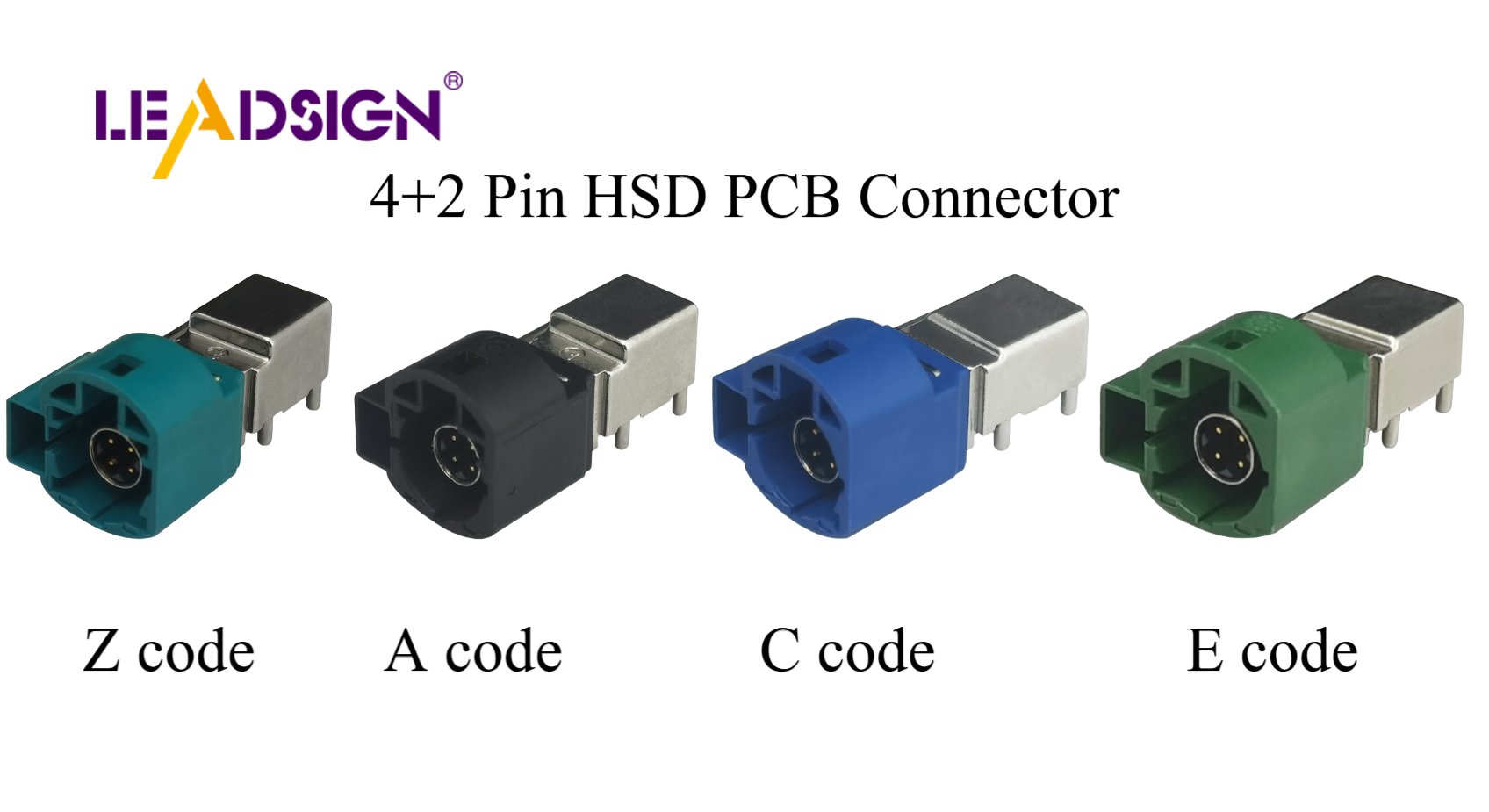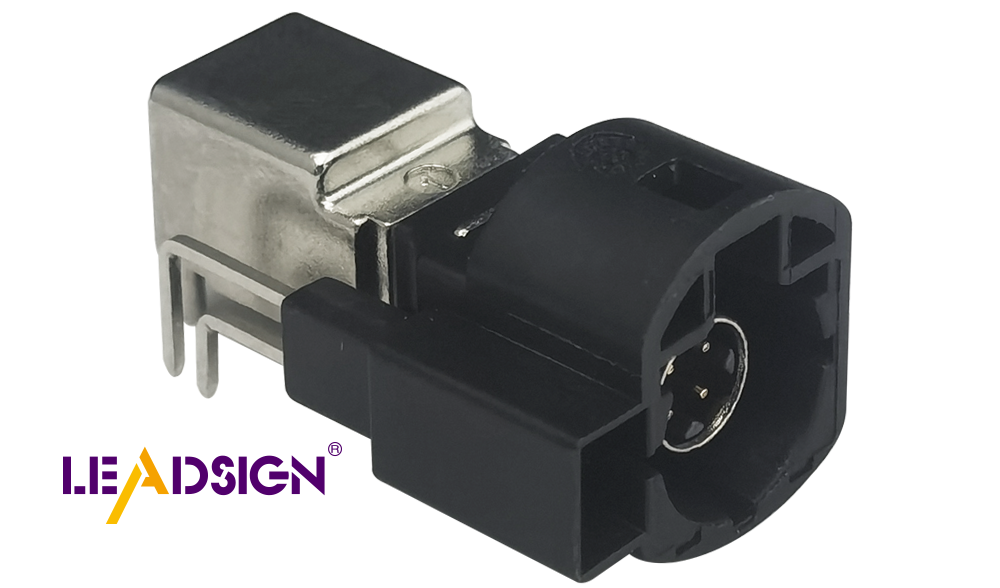What Are Automotive Plugs and Connectors Used For

Automotive plugs and connectors are key to vehicle electrical systems. They help power flow, send signals, and share data between parts. Without them, cars would not work well today. They are needed to run engines, safety tools, and entertainment systems. Their strong build handles tough conditions, making them last long. As cars get smarter, better automotive plugs and connectors are needed. This pushes new ideas in the car industry.
Key Takeaways
Automotive plugs and connectors are essential for the electrical systems in vehicles, enabling power flow, signal transmission, and data communication.
Different types of connectors serve specific functions, such as power connectors for energy distribution, signal connectors for communication between sensors, and data connectors for infotainment systems.
High-quality connectors are designed to withstand extreme conditions, ensuring reliability and safety in critical systems like airbags and brakes.
Understanding the various types of connectors helps in selecting the right one for your vehicle, enhancing performance and longevity.
Regular maintenance of connectors, including checking for damage and cleaning, can prevent issues and improve your car's efficiency.
As automotive technology advances, connectors are becoming more sophisticated, supporting features like electric engines and advanced infotainment systems.
Understanding Automotive Plugs and Connectors
What Are Automotive Plugs and Connectors?
Automotive plugs and connectors are important parts of today’s cars. They connect electrical systems to share power, signals, and data. These parts help systems like engines, lights, and entertainment work properly.
There are different types of automotive connectors, like plug-and-socket or wire-to-board. Each type has a special job in the car’s electrical system. For example, wire-to-wire connectors are used in advanced systems like electric engines. These connectors stay strong and reliable, even in tough conditions.
Automotive connectors are built to handle extreme situations. They can survive high heat, shaking, and other daily challenges. Their strong design helps them last long and keeps cars safe and efficient.
How Automotive Connectors Work in Vehicles
Automotive connectors act as links between electrical parts. They send power and data so all car systems work smoothly. For example, they connect the engine to the starter, helping the car start. They also link sensors, fuses, and batteries to keep electricity flowing.
These connectors are made to be dependable. Features like crimp connections and locks keep them stable. High-quality connectors stay secure even in electric cars with high voltage. This ensures systems like lights and engines work without problems.
Besides power, connectors also help with data sharing. They allow USB, Ethernet, and infotainment systems to work. This makes sure your car’s entertainment and navigation run well for a better drive.
By connecting systems, automotive connectors help cars work safely and efficiently. Their strength and ability to handle complex tasks make them key to modern car technology.
Key Uses of Automotive Plugs and Connectors in Cars
Power Distribution
Plugs and connectors help share power in a car. They make sure parts like the engine, lights, and battery get energy to work. For example, they connect the car's main unit to its power source, keeping systems running smoothly.
Newer cars, like electric ones, need special connectors for high power. These connectors are made strong to handle tough conditions. They keep the car safe and ensure power flows properly.
Signal Transmission
Connectors also send signals between car sensors and control units. For instance, they link the engine's control unit to sensors checking temperature, pressure, and speed. This helps the car run safely and efficiently.
Good signal transmission is important for smart car features. Things like self-driving and safety systems need accurate signals. Special connectors make sure signals are clear and reliable, improving car safety and performance.
Data Communication
Sharing data is a big part of modern cars. Connectors help infotainment systems, GPS, and other devices share information. They support USB, Ethernet, and wireless tech for smooth connections.
Fast data connectors, like HSD ones, are made for cars. They move lots of data quickly, helping with entertainment and navigation. These connectors make driving more enjoyable with fast and steady data sharing.
By combining power, signals, and data, connectors keep cars working well. Their strong design and smart features make them essential for today’s vehicles.
Types of Automotive Plugs and Connectors

Automotive plugs and connectors come in many types. Each type is made for a specific job in cars. Knowing their types helps you pick the right one. Below, we explain these connectors by their use, shape, and purpose.
By Function
Connectors have different jobs based on their role in cars. Common types include:
Power Connectors: These connect the car’s main unit to power. They provide energy to important parts like the engine and lights.
Signal Connectors: These send signals between sensors and control units. For example, they link the engine control unit to sensors checking speed or heat.
Data Connectors: These are used in modern cars with GPS and USB ports. Fast data connectors, like multi-pin sealed connectors, help share data quickly and reliably.
Each connector type helps the car work safely and smoothly.
By Design
Connector designs change to fit different needs and places in cars. Popular designs include:
Plug-and-Socket Connectors: These connect systems like the engine control unit and infotainment. Their design ensures steady power and signal sharing.
Wire-to-Wire Connectors: These join wires in the car’s electrical system. They are strong and secure, perfect for advanced systems like electric engines.
Terminal Connectors: These connect wires or terminals to circuits easily. They save space, stop shortages, and avoid wire splicing.
Strong designs, like those with locks, make them last longer in tough conditions.
By Application
Connectors are made for specific uses in cars. Examples include:
Engine Systems: These connectors handle heat and shaking. They keep parts like the starter and alternator connected.
Infotainment Systems: Data connectors help with entertainment and navigation. They connect devices like USB ports and screens.
Safety Systems: These connectors work in airbags and brakes. They send signals fast and accurately, improving safety.
These connectors are key to how cars work every day. From simple tasks to advanced tech, they are essential.
By learning about automotive connectors, you see their importance. Each type, whether by job, shape, or use, helps cars run well and stay safe.
Why Automotive Plugs and Connectors Matter in Cars
Keeping You Safe
Plugs and connectors help keep you safe while driving. They connect important safety systems like airbags and brakes. These systems need clear signals to work properly. For example, during a crash, connectors help airbags deploy quickly.
Strong connectors, like metal ones, are made to last. They don’t fail even in heat or shaking. This strength ensures safety features work when needed. Reliable connectors make cars safer for everyone.
Making Cars Work Better
Connectors help your car run smoothly and efficiently. They link systems to share power and data easily. For example, wire connectors help electric engines work well together.
Modern cars use connectors for GPS, music, and safety tools. These systems need fast and steady connections to work right. High-quality connectors ensure everything runs smoothly, improving your drive.
Built to Last
Car connectors are made to handle tough conditions. They survive heat, water, and shaking without breaking. For example, engine connectors stay strong under high stress and heat.
Special materials like strong metals and plastics make them last longer. Locks and crimping add extra security. Durable connectors prevent problems, saving money and keeping your car reliable.
"Connectors are key to safe, efficient, and long-lasting cars.
Car plugs and connectors are important for making vehicles work well. They help send power, signals, and data between car parts. These parts are strong and can handle tough conditions, staying safe and reliable. There are many types of connectors, each made for a specific job. They power engines and support advanced systems like entertainment tools. As technology improves, connectors get better, making cars run smoother and safer. Knowing their purpose helps you see how they make driving easier and smarter.
FAQ
What Are Automotive Electrical Connectors?
Automotive electrical connectors, or auto connectors, join wires in cars. They help move power and data between different systems. There are many types, each made for a specific job. As cars improve, these connectors become stronger and work better.
Why Are Automotive Connectors Important?
Connectors make sure your car's electrical systems work well. They send power, signals, and data between parts. Without them, things like the engine and lights wouldn’t work. Their strength affects how safe and efficient your car is.
How Do I Choose the Right Connector for My Vehicle?
Pick a connector based on what it does. Use power connectors for energy, signal connectors for messages, and data connectors for sharing information. Check if it fits your car and is strong enough to last.
Can Automotive Connectors Handle Extreme Conditions?
Yes, these connectors are made for tough situations. They can handle heat, shaking, and water. Features like locks and crimping keep them steady. This makes them reliable even in hard conditions.
What Are the Common Types of Automotive Connectors?
Connectors are grouped by what they do, how they look, and where they’re used. Common ones include:
Power Connectors: Give energy to parts like the engine and lights.
Signal Connectors: Send messages between sensors and control units.
Data Connectors: Help share information for GPS and entertainment systems.
Each type has a special job in your car.
How Do Connectors Improve Vehicle Safety?
Connectors are key to safety systems like airbags and brakes. They send quick and clear signals during emergencies. Strong connectors made from good materials ensure these systems work when needed.
Are There Specialized Connectors for Modern Vehicles?
Yes, modern cars need special connectors. For example, high-speed data (HSD) connectors help with navigation and entertainment. These connectors move data fast, making driving easier and more fun.
How Can I Maintain My Vehicle’s Connectors?
Check your connectors often for damage or dirt. Clean them to stop rust and keep them working. Make sure they stay connected tightly. Taking care of them helps your car run better and longer.
What Happens If a Connector Fails?
A broken connector can stop your car’s systems. For example, a bad power connector might stop the engine. Problems with signal or data connectors can affect safety or entertainment. Fixing them quickly keeps your car safe and working.
Where Are Automotive Connectors Commonly Used?
Connectors are found in many car systems, like:
Engine Systems: They connect parts like the starter and alternator.
Infotainment Systems: Data connectors link GPS, USB ports, and screens.
Safety Systems: Signal connectors help airbags and brakes work properly.
These connectors are important for your car every day.
See Also
Understanding HSD Connectors Essential for Automotive Applications
Why Fakra Connectors Are Crucial for Today's Vehicles
Significance of FAKRA Connectors in Vehicle Systems

